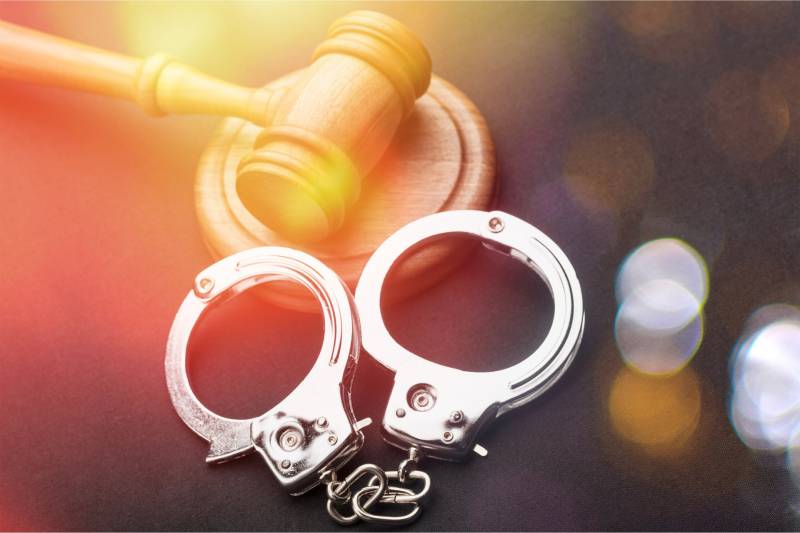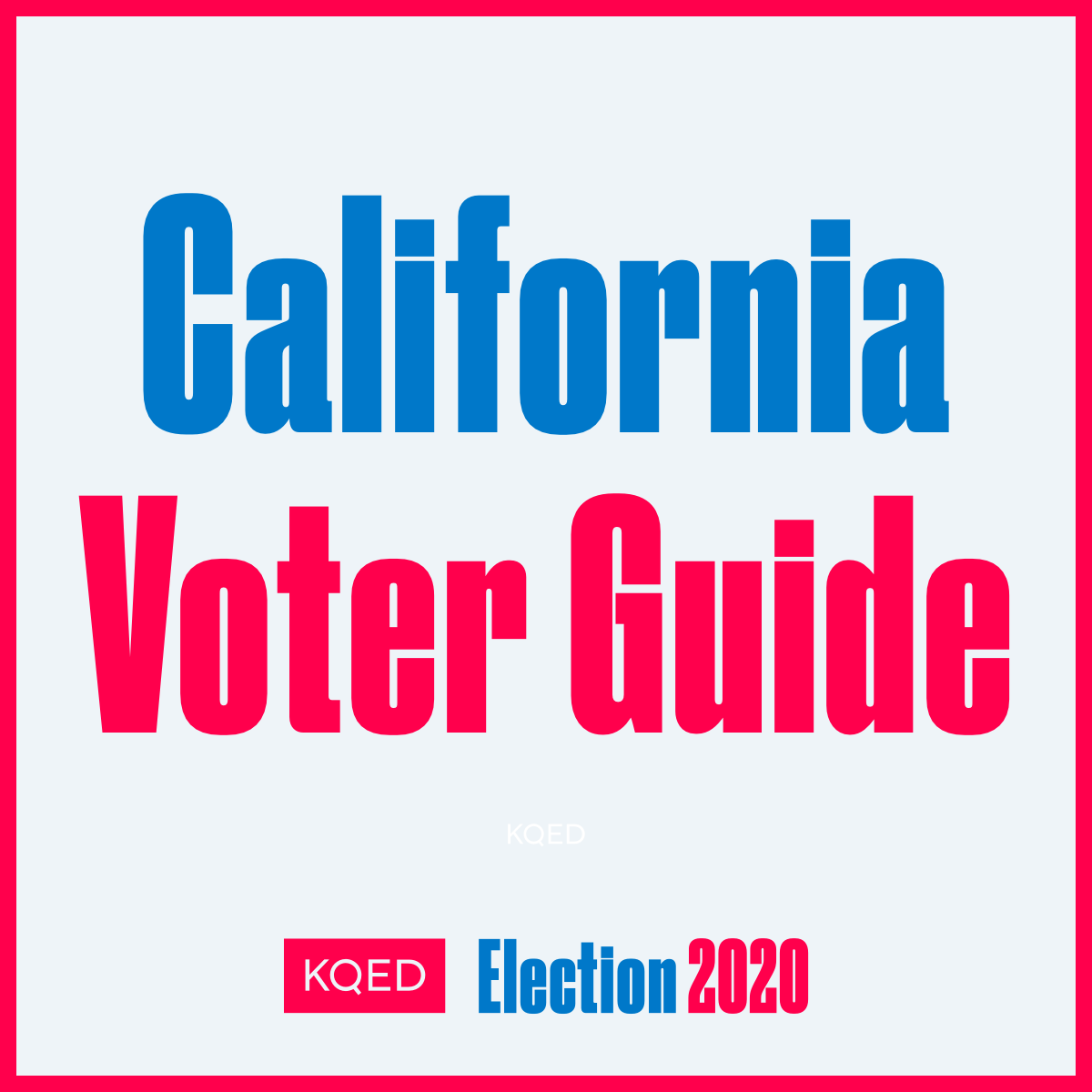Olivia Allen-Price [00:00:38] Yes, this one has a lot of pieces to it. We’ll unpack it all today on the show. It’s Prop 20, the criminal sentencing prop.
Olivia Allen-Price [00:00:52] Hey, everyone. Just a quick programing note in this episode, we discuss violent crime, including rape.
Olivia Allen-Price [00:00:59] Here to talk Prop 20 with us is Marisa Lagos, KQED politics correspondent and co-host of the Political Breakdown podcast. Good morning, Marisa.
Marisa Lagos [00:01:07] Morning, Olivia.
Olivia Allen-Price [00:01:08] So, what is Prop 20 about? Why are we even voting on this?
Marisa Lagos [00:01:12] There has been a lot of reforms in California over the past decade or so around criminal justice, and most of them were really aimed at reducing the prison population and giving people more opportunities for rehabilitation. It was sort of a reversal of the tough on crime push that we saw largely in the 1990s. And a lot of those changes have been very controversial among law enforcement. They were not pleased, particularly with two ballot measures that voters passed in 2014 and 2016. And I would say, kind of top level, Proposition 20 is aimed at rolling back some of the key portions of those ballot measures, and essentially making it harder for a lot of people to get out of prison and potentially easier for DA’s [District Attorneys] to send a lot of people to jail.
Olivia Allen-Price [00:01:59] Now, let’s get into some of those ballot measures, because I feel like I was just voting on this, you know, during the last presidential election. You know, so, what were some those reforms? And you what happened there?
Marisa Lagos [00:02:09] Yeah. I mean, in 2011, as Governor Jerry Brown took office, the U.S. Supreme Court ruled in favor of a very long standing lawsuit that essentially challenged California’s – the way it was treating prisoners. And what the courts found was that essentially California’s prisons were so overcrowded that it was resulting in inmates dying – at one point, at a rate of like one person a day, I believe. And the court said, you, California, have to find a way to reduce the number of people in your prisons or essentially the courts are just gonna open up the doors and let prisoners out, you know, willy nilly. And so the state kind of embarked on a series of reforms. The first one, it was passed in the legislature in 2011. It’s called realignment. It was kind of the building block for some of these later reforms.
Olivia Allen-Price [00:02:55] Right. Yeah. So, a lot of us will probably remember realignment. That is when the state changed the punishment for many crimes so that people convicted were sent to jail instead of prison. But, Marisa that was just the beginning of reforms, right?
Marisa Lagos [00:03:09] Sort of parallel to that, we have seen a real awakening around racial justice and criminal justice in California. It started to really shift public opinion and the kind of tough on crime mantra that really dominated the day during the 1990s started to slip. And I think voters were more willing to take a chance and try some new things because a lot of people felt like what was being done wasn’t working and we were just kind of burning up public funds.
Olivia Allen-Price [00:03:41] All right, so public opinion is, is moving on some these big topics. How did they take advantage of that to bring about some reforms?
Marisa Lagos [00:03:48] Yes, so first, there was a ballot measure in 2014. This was Proposition 47. It essentially made a lot of felonies, misdemeanors. So if you had a simple drug possession arrest on your record, if you were caught shoplifting less than $900 worth of merchandise, instead of getting charged with a felony, you could get charged with a misdemeanor.
Olivia Allen-Price [00:04:08] All right. So that means fewer people are being sent to prison, which should mean the state saved some money here, right? What happens to the extra cash?
Marisa Lagos [00:04:17] It also had a provision saying, we’re going to take the savings from those lower prison and jail populations and actually put them right back into programs that will hopefully help prevent future crimes by supporting communities and kids, and rehabilitating people who have been in prison, and by spending more money on victim services. So, this was really an attempt to sort of shift the narrative and the actual money flow away from incarceration and back in to rehabilitation.
Olivia Allen-Price [00:04:46] All right, so that’s one set of reforms, but you said there were more.
Marisa Lagos [00:04:50] The second measure was actually written by Jerry Brown. I think there was a sense that they had gone as far as they could in the legislature to help reduce the prison population and that they needed to ask voters to change the law so that far more felons could go before the parole board earlier. So this was a, was a measure that really allowed a broader class of prison inmates to potentially apply for rehabilitative programs and then asked the parole board to release them early. It didn’t guarantee any early releases, but it has resulted in thousands of inmates getting out, you know, in some cases years before they would have even been eligible to ask for that release.
Olivia Allen-Price [00:05:34] And then we get from those to where we are today, voting on Prop 20, our criminal sentencing prop. Marissa, I understand that Prop 20 would change four things. Let’s start in on what it would do.
Marisa Lagos [00:05:47] Broadly, this is a ballot measure written by law enforcement – from their perspective, fixing some of the problems with those earlier reforms. It would reduce the number of people eligible to go before the parole board by bringing in a whole bigger group of crimes, sort of doubling the list of people that are just ineligible to ask for early parole.
Olivia Allen-Price [00:06:09] OK, that’s the first part. What’s the second thing it does?
Marisa Lagos [00:06:12] It would also make it a lot easier to charge people with felony theft by lowering back the dollar threshold. So, this would say instead of $900 it’s at $450.
Olivia Allen-Price [00:06:23] And the third thing?
Marisa Lagos [00:06:24] It would also kind of, I would say, tie the board of parole hearings, hands a little bit more by requiring them to look a lot more broadly at an inmate’s history when they’re considering release.
Marisa Lagos [00:06:38] And finally, and I would say this might be the least controversial aspect of it, it would reinstate DNA collection for people who have been convicted of a long list of misdemeanors. Right now, if you, if you get a misdemeanor conviction they do not collect your DNA and put it in the state and federal database.
Olivia Allen-Price [00:07:00] And I know you’ve been talking with folks on both sides of this issue. You know, give me a broad sense of what people are saying on the yes side.
Marisa Lagos [00:07:07] So, this is broadly supported by the kind of typical law and order groups that you might expect to be pushing harsher criminal sentencing laws. We’re talking police unions, we’re talking some of the more conservative prosecutors in the state. Even one victims group that was really instrumental in the 90s in pushing things like three strikes. They basically say that the reforms of the past decade or so went too far, that violent offenders are getting out of prison who shouldn’t be.
Olivia Allen-Price [00:07:36] One of those earlier reform measures that passed relied on a list that the state has that delineates which crimes are considered violent. People convicted of those violent crimes were not eligible for early parole. But if someone’s crime wasn’t on that list, they technically were.
Marisa Lagos [00:07:52] So that is a pretty limited list. It does include things like murder and rape, but there’s some specifics within the code, like rape of an unconscious person isn’t included on that list. And so Richard Temple, the consultant for the yes side, says that essentially voters were misled by Prop 57 and some of these other reforms.
Richard Temple clip [00:08:12] It was designed for nonviolent offenders. That’s what voters were told – that’s what the governor promised, even afterwards, if there was any situation his administration would fix it by regulations. Both did not happen. So, there are violent crimes that under California law are not classified as violence, and therefore these criminals are allowed early release, which is not what Proposition 57 promised.
Marisa Lagos [00:08:36] I think folks pushing some of these earlier reforms didn’t talk very deeply about what which statute, you know, would be considered a violent offense versus which wouldn’t. But the parole board still has a lot of discretion here, it’s largely made up of former law enforcement officials. And what the other side would say to that is, well, it’s very unusual that you would be in prison for just, say, rape of an unconscious person. There’s probably other charges, and the parole board is going to look at the whole picture, not just go kind of by the nitty gritty of what the statutes say.
Olivia Allen-Price [00:09:09] And what about those who are lining up against it? What do they think?
Marisa Lagos [00:09:12] So, the biggest name is Governor Jerry Brown, who helped draft some of these earlier reforms that this would roll back. But this is kind of also a who’s who of the Democratic establishment, including the current governor, Gavin Newsom. And additionally, a lot of the public employee unions and other big kind of left leaning labor organizations. There’s also some groups representing victims that are against this measure. And these are folks who have tried to kind of reframe the discussion around who is a victim, who is a survivor of crime – they more represent communities of color, people who maybe live in places where, yes, they’ve been victims of crime, but they or their family members have also been accused of crimes. And they see healing needs to happen at the community level and worry that locking more people up won’t actually help victims, but actually hurt them by taking money away from victim services.


